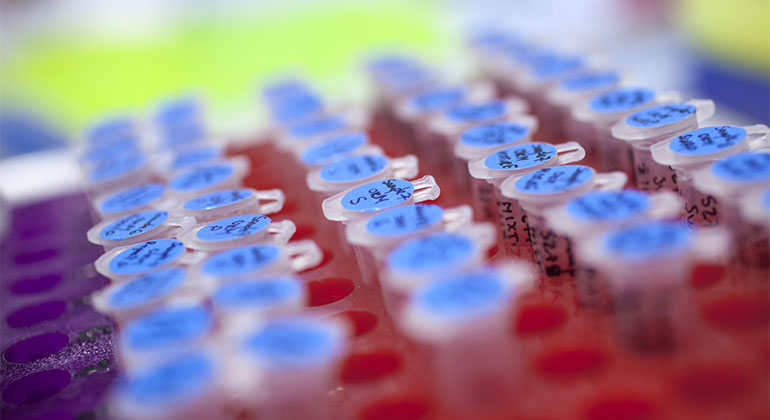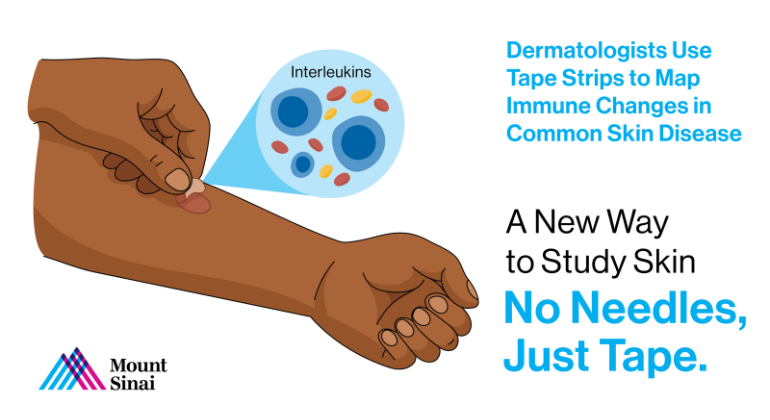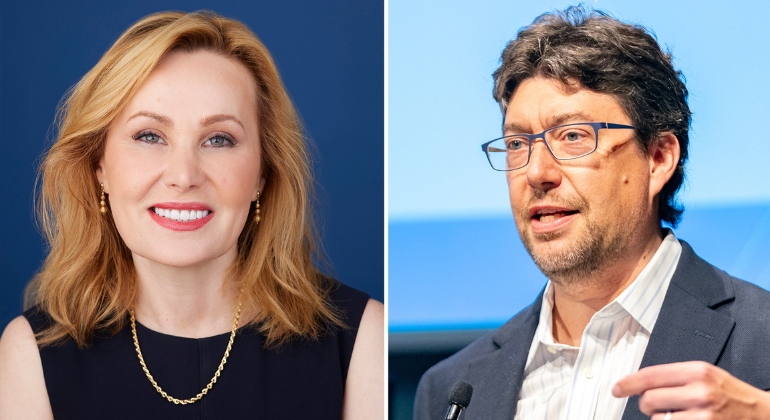Mount Sinai Study Finds Long-Term Eczema Treatment Benefits Patients With Delayed Response
Research shows significant skin clearance and itch relief at 52 weeks, offering new hope for patients with moderate-to-severe eczema

New research from the Kimberly and Eric J. Waldman Department of Dermatology at the Icahn School of Medicine at Mount Sinai reveals that patients with moderate-to-severe atopic dermatitis (eczema) who did not initially respond to biologic treatment may still achieve significant clinical improvements with continued therapy.
The findings, published in the latest issue of Journal of the American Academy of Dermatology (JAAD), highlight the efficacy of extended lebrikizumab treatment up to 52 weeks and pave the way for more personalized, patient-centered approaches to managing this chronic skin condition.
Lebrikizumab is designed to treat moderate-to-severe eczema by targeting a key source of inflammation in the body. It works by blocking interleukin-13 (IL-13), a protein that plays a central role in the itching, redness, and skin damage seen in atopic dermatitis.
“This is a significant breakthrough because it shows that people who do not respond to lebrikizumab treatment right away should not give up,” says lead author Emma Guttman-Yassky, MD, PhD, Waldman Professor and Chair of the Kimberly and Eric J. Waldman Department of Dermatology at the Icahn School of Medicine at Mount Sinai. “Initial non-response at 16 weeks does not mean treatment failure. By sticking with treatment longer (52 weeks), most patients saw their eczema improve significantly.”
Researchers analyzed data from two international clinical trials. At 16 weeks, 38.1 percent of lebrikizumab-treated patients failed to meet strict trial criteria for response. However, 58.1 percent had already achieved at least a 50 percent improvement in their Eczema Area and Severity Index (EASI) scores. By 52 weeks, 75.5 percent had reached a 75 percent improvement (EASI 75), 44.2 percent had achieved a 90 percent improvement (EASI 90), and 66.4 percent reported a significant reduction in itching.
“This research supports a more personalized approach to care,” Dr. Guttman-Yassky says. “It offers new hope for patients with difficult-to-treat eczema and may help guide treatment decisions in clinical practice.”
To read the full manuscript and see the full list of contributors visit: Journal of the American Academy of Dermatology (JAAD).
For more information about the Kimberly and Eric J. Waldman Department of Dermatology at Mount Sinai: https://www.mountsinai.org/care/dermatology.
About the Icahn School of Medicine at Mount Sinai
The Icahn School of Medicine at Mount Sinai is internationally renowned for its outstanding research, educational, and clinical care programs. It is the sole academic partner for the seven member hospitals* of the Mount Sinai Health System, one of the largest academic health systems in the United States, providing care to New York City’s large and diverse patient population.
The Icahn School of Medicine at Mount Sinai offers highly competitive MD, PhD, MD-PhD, and master’s degree programs, with enrollment of more than 1,200 students. It has the largest graduate medical education program in the country, with more than 2,600 clinical residents and fellows training throughout the Health System. Its Graduate School of Biomedical Sciences offers 13 degree-granting programs, conducts innovative basic and translational research, and trains more than 560 postdoctoral research fellows.
Ranked 11th nationwide in National Institutes of Health (NIH) funding, the Icahn School of Medicine at Mount Sinai is among the 99th percentile in research dollars per investigator according to the Association of American Medical Colleges. More than 4,500 scientists, educators, and clinicians work within and across dozens of academic departments and multidisciplinary institutes with an emphasis on translational research and therapeutics. Through Mount Sinai Innovation Partners (MSIP), the Health System facilitates the real-world application and commercialization of medical breakthroughs made at Mount Sinai.
-------------------------------------------------------
* Mount Sinai Health System member hospitals: The Mount Sinai Hospital; Mount Sinai Brooklyn; Mount Sinai Morningside; Mount Sinai Queens; Mount Sinai South Nassau; Mount Sinai West; and New York Eye and Ear Infirmary of Mount Sinai.
About the Mount Sinai Health System
Mount Sinai Health System is one of the largest academic medical systems in the New York metro area, with 48,000 employees working across seven hospitals, more than 400 outpatient practices, more than 600 research and clinical labs, a school of nursing, and a leading school of medicine and graduate education. Mount Sinai advances health for all people, everywhere, by taking on the most complex health care challenges of our time—discovering and applying new scientific learning and knowledge; developing safer, more effective treatments; educating the next generation of medical leaders and innovators; and supporting local communities by delivering high-quality care to all who need it.
Through the integration of its hospitals, labs, and schools, Mount Sinai offers comprehensive health care solutions from birth through geriatrics, leveraging innovative approaches such as artificial intelligence and informatics while keeping patients’ medical and emotional needs at the center of all treatment. The Health System includes approximately 9,000 primary and specialty care physicians and 10 free-standing joint-venture centers throughout the five boroughs of New York City, Westchester, Long Island, and Florida. Hospitals within the System are consistently ranked by Newsweek’s® “The World’s Best Smart Hospitals, Best in State Hospitals, World Best Hospitals and Best Specialty Hospitals” and by U.S. News & World Report's® “Best Hospitals” and “Best Children’s Hospitals.” The Mount Sinai Hospital is on the U.S. News & World Report® “Best Hospitals” Honor Roll for 2025-2026.
For more information, visit https://www.mountsinai.org or find Mount Sinai on Facebook, Instagram, LinkedIn, X, and YouTube.

New Research Sheds Light on Why Eczema So Often Begins in Childhood
Feb 25, 2026 View All Press Releases
Mount Sinai Dermatologists Use Tape Strips to Map Immune Changes in Common Skin Disease
Jun 10, 2025 View All Press Releases
